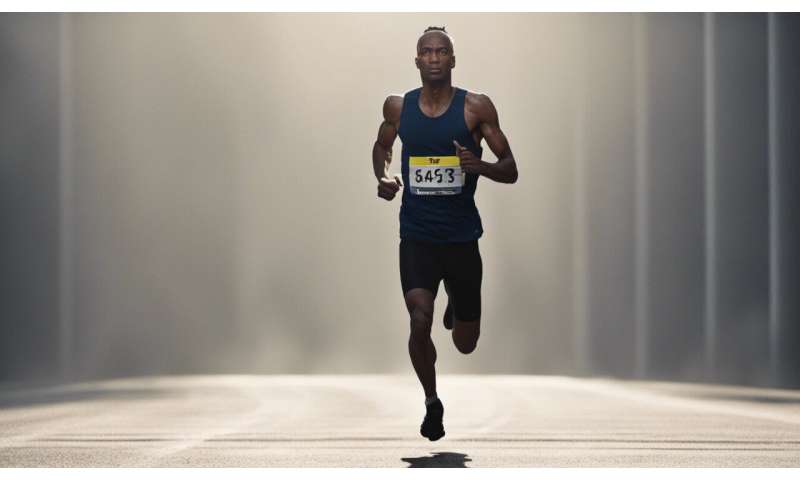What attracts people to endurance running?

Endurance running is often seen as a welcome escape from everyday life. But extraordinary experiences, such as running ultra-marathons, are not untouched by the competitive nature of contemporary consumer culture, a new thesis from Lund University in Sweden argues. The at times romanticized notion of experiencing complete freedom through running, co-exists with underlying motivating factors such as improving your personal brand and social image, the research shows.
The number of endurance running events, such as Ironman or Tough Mudder, is increasing around the world. If you haven’t done it yourself, you may have picked up on the trend by sponsoring a colleague or friend to run up Mont Blanc or across the Sahara desert. Few of us have escaped the sight of people pounding the pavements or running laps in the local park, perhaps training for a future race.
“Most runners say that they run because it is a way to get away from the demands and stresses of their regular life. But my research shows that this is only one side of the story; there are also a lot of demands in ordinary life that are actually reproduced in endurance running. For example, the pressure to be productive, efficient and to measure your achievements are recurring themes,” says Carys Egan-Wyer, doctoral student in consumer culture theory.
Carys Egan-Wyer interviewed 16 endurance runners and analysed 21 diaries—totaling almost 1,000 pages—throughout the course of her dissertation. For the purposes of the study, she defined endurance runners as triathletes, ultra-distance runners (people who run distances longer than a marathon) and obstacle adventure race runners.
https://youtube.com/watch?v=aYkFcgjbMsQ%3Fcolor%3Dwhite
She identified three motivating factors that the runners themselves used when they spoke about their running: freedom, achievement and competition.
“The runners are motivated by a feeling of total freedom, a place where they can fully immerse themselves. At the same time, they are very focused on measuring and quantifying what they do. They use their endurance running achievements in other areas of life. For example, on CVs, to demonstrate what good employees they would be. Runners view their peers as community, but there is also an element of competition. So there are some inherent contradictions,” says Carys Egan-Wyer.
In many ways, Egan-Wyer says, the runners are boosting their personal brands and competing with others in terms of their social image. One example of this is that showing sportsmanship—helping others at races—is seen as heroic.
The group of people who compete in these types of events is still a niche community, and so the results cannot necessarily be generalized to include other groups in society, according to Carys Egan-Wyer. However, she sees a need for future research to examine our contemporary lives further in this regard.
“A lot of people these days are suffering from burn out, stress and anxiety. It is possible that leisure pursuits in our so-called free time have become a type of “work” for a lot of us, not just for runners. Endurance running is one example where we, on one hand, understand ourselves to be free from the stress of everyday life, but in fact our bodies and brains might understand this as work. We need to understand if this is contributing to stress, burn out and anxiety,” concludes Carys Egan-Wyer.
Runners—in their own words
Freedom:
“I put my race on so most people [competitors] see the sunrise at one of the highest points in Skåne. And it’s just like magical. It really is. I think most people sort of think about God, religion at that moment. And that’s the meaning because they’re beautiful and you won’t go to these places in your busy city life.” (Simon, ultra-distance race organiser)
Achievement:
Source: Read Full Article
